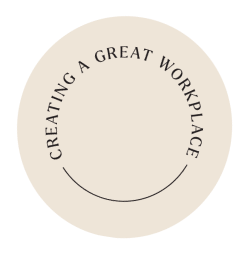GH: Paige, you are the Founder and Chief Birthday Enthusiast at The Birthday Party Project. For those not familiar, can you tell us about your incredible mission and the inspiration behind the company’s conception?
PC: At The Birthday Party Project, our mission is to bring joy to children experiencing homelessness through the magic of birthdays. We do that by partnering with homeless shelters and transitional living facilities and we provide volunteers, who we call birthday enthusiasts, to come in and host big birthday parties for the children that are staying there. The best part for us is that we invite all of the kids and families that are staying at the agency to also participate in the party.
I had an event planning business for about 10 years and I have always loved being a part of people’s celebrations. My favorite part is getting to know people and learning what excites them and brings them joy. Those moments of joy are so impactful to me because I feel like it allows me to see a piece of humanity that I hadn’t been able to experience before that connection over celebration.
While I was pregnant with my daughter, Lizzie, I was on an airplane reading a magazine article about kids birthday parties and getting really excited about ways that I could celebrate her. And as I started to dream about what I could for Lizzie, I also realized that there were so many children out there that would never feel celebrated the way that I could celebrate my daughter. That came to me in this one punch in the gut, fire in my belly, kind of moment when I was reading a magazine article about children in Haiti. There was this image of a little boy next to this article and he’s standing in the middle of a street where there’s dust and chaos all around. And this boy was just kind of staring at me and I thought, “OK, here I am thinking about all the ways that I can celebrate Lizzie- pink ponies, bounce houses in the backyard, etc.- and this child will never experience that. What can I do about that?” That’s when I started wrestling with this idea that I could use my gifts and talents to celebrate children like him.
GH: Stories are a great way to learn about the values and culture of an organization; what is a recent story that you feel really captures the spirit of your organization?
PC: Two years ago we had the privilege of celebrating a boy turning 18 at Family Gateway in Dallas. Taris was the oldest of three and he had been living at the shelter for about four months. Our party coordinators who host parties on our behalf had gotten to know these three boys because they had been around for a few months. When it came time to celebrate Taris and his 18th birthday, we gave him a gift card. The gift card was a very nominal value but when we sang Happy Birthday to him and he blew out his candles he opened his present and the first thing he said was: “This is so exciting. I get to use this gift card toward books at school.” That caught the attention of one of our party coordinators, Christy, and she decided to ask more questions.
Christy learned that Taris was already going to a community college in Dallas, making a 4.2, and was $200 away from being able to pay for his books in order to go back the following semester. In that moment, the volunteer realized that not only could she celebrate his birthday, but she could also find other ways to support him. Christy came back and told us the story of Taris and as we started hearing about him, his family’s story, and what led them to this shelter, we realized that we had people in our world that could help him even further.
We shared Taris’ story with some other folks and these volunteers around the country rallied and they all donated money and found resources to get him prepared for college. As a result, Christy, our Party coordinator, went back over to him to give him a gift card to help him with more books, a calculator for his courses, paper, pencils and pens. As he is opening these presents, Taris starts with the mechanical pencils and he takes the box, pulls one out, and proceeds to give the box back to Christie. Christie’s like, “Taris, what are you doing?” He said, “Wait, you’re saying that I can keep all of these pencils?” It was amazing for us to realize that he was so thankful and such a good steward of the gifts that he had been given.
Bonus website-only extended content:
So, fast forward, people continued to hear about Taris and what he was trying to do for himself and for his family. Our network rallied around him and made sure that he got into a four-year university. They helped him fill out his scholarship applications. They made sure that he was dressed and ready for the first day of school and that he had his braces taken off. Our community truly wrapped their arms around this family to celebrate him and his accomplishments and let him know that we were there for him in perpetuity. And I believe that that’s exactly who we are at The Birthday Party Project. Yes, it starts with celebrating a child’s birthday, but my hope is that this child feels so valued and special and they understand what they’re capable of because of people like us who believe in them. I have yet to see a party coordinator just high five someone and not want to continue the conversation past their birthday celebration that month. Most of the people involved in our organization want to continue walking alongside these families and these children for months and years to come.

> Love Taris’s story? Watch a short video here.
GH: Growing a culture in the not-for-profit sector comes with unique challenges; what are some challenges you’ve experienced in culture-building and how have you overcome them?
PC: Nonprofits are known for focusing on mission and making sure that their mission stays at the forefront of all they do. And I absolutely agree with that; without our mission we don’t have a purpose and without a purpose we don’t attract volunteers. I also understand that it takes an extraordinary amount of people and effort to make our mission come to life. Early on, we worked really hard to find people that had very different backgrounds than me for our board and for our team. The idea is to bring the best of the best around us to think about the things that we weren’t thinking of ourselves.
What I found myself doing was being really protective of my ideas and our mission and there was a bit of Founder’s Syndrome that was associated with that. It was hard for me in the beginning to recognize that the ideas that were coming to us were only going to strengthen our mission if we would just empower people to do what they do best and to serve in the way that they felt called to serve our organization. It took some hard conversations with a couple of my team and board members for me to understand that there’s more to this organization and what we can do if I can just get out of my own way.
In that first year I learned very quickly that founding an organization doesn’t necessarily mean that I’m the right person to continue to grow and scale it, that it’s going to take everybody and a very unique set of skills to come together to make this thrive. And I wanted to thrive. So, I stepped out of my way and started to really lean in and listen to the people around me (that I had asked to be around me) versus just bringing them in listen to me and execute things exactly the way we had been doing. I learned to relinquish control and allow them to step into their purposeful role within our organization. The moment that I made that shift, and that we as an organization shifted our focus to empowering people, is truly the moment that we started to take off. The joy that people experience during our parties began to extend far beyond our initial party and people finally started to feel really confident in the work that they were doing.
GH: As a CEO, what do you see your primary role being in terms of creating the strongest culture possible?
PC: We call ourselves the support team to our group of volunteers. We are not we are not in charge. In fact, I’m in charge of nothing these days! We realize that if we wanted to do as we say, equip and empower our party coordinators to host parties on our behalf, then that’s exactly what we need to do. That means we fall into a support role and ask this daily, “what does support look like for you?” For me, that is where I have found myself recently with my team, and also with the party coordinators, is stepping out of a role of authority or having the loudest voice in the room. People want to talk to me and they want to hear from me and I certainly appreciate and understand that. And yet, my team is incredibly capable- they are the ones making sure that things are happening on a daily basis. My days are spent asking, “what does support look like?” And if they say “I’ve got it,” then I step back and get out of the way and if they say, “we need some help here then,” then we start to explore what it could look like to bring other people in to help find the solution. I certainly don’t want to be in the rescuer or the hero seat. I want to be the conduit between our team and resources to make things happen.

GH: What culture principles did you learn at the Unstoppable Cultures Fellowship that were instrumental in improving your organization’s culture?
PC: Prior to my attending the Fellowship we were living by our core values, we were trying to treat people well, and if we ever felt like we weren’t living inside of our core values or acting that way we would address it. But, there was never anything in place that was really structured and I realized after being at Fellowship how important that is to the success of the overall organization – let alone the culture side of our organization. We came back and immediately put into place touch points for all the different people that we interact with on a daily or yearly basis. And we became very intentional about how we spend our time with these people and what our touch points look like. Putting together that culture calendar has really has been so impactful already. Even in just the 6-8 months since the event it has made a tremendous dent in the way that we care for people.
Bonus website-only Question:
GH: What do you feel are the most unique attributes of your culture?
PC: I think that our organization is unique in that we are pretty volunteer-driven around the country. As a 501c3 that’s raising money and using donor dollars, we recognize that there is a high level of stewardship that’s required of us. The uniqueness of being able to then rely on our party coordinators to make things happen has been such a gift to us, to our organization, and to the kids we serve. The way that we’re able to do that is that we are transparent always. If we are falling flat on our face we are the first to say to our party coordinators, “We need help! We didn’t do that right- how can we make this better?” We are constantly going to them first. I think transparency paired with one of our core values, to have fun, allows for a really great rhythm in our organization.
About Paige Chenault

Paige Chenault is the founder of The Birthday Party Project, a non-profit that throws birthday parties for children in homeless shelters. She worked for years as a wedding and event planner. In 2008, pregnant with her first child and thinking about the birthday parties she would throw for her daughter, Paige was inspired to volunteer to throw monthly birthday parties for children at a homeless shelter in Dallas.
Taking her passion for helping others and her ability to plan spectacular and meaningful events, Paige quit her job in 2012 and decided that celebrating others was her purpose in life and The Birthday Party Project was born. She tells a story of a little girl who didn’t know what candles were or that she should blow them out to make a wish – because she had never had a birthday party. Today, The Birthday Party Project brings the magic of birthday parties for children in homeless shelters every month in 14 cities. Paige’s hope is to expand to more cities to help more children experience something so many take for granted.





